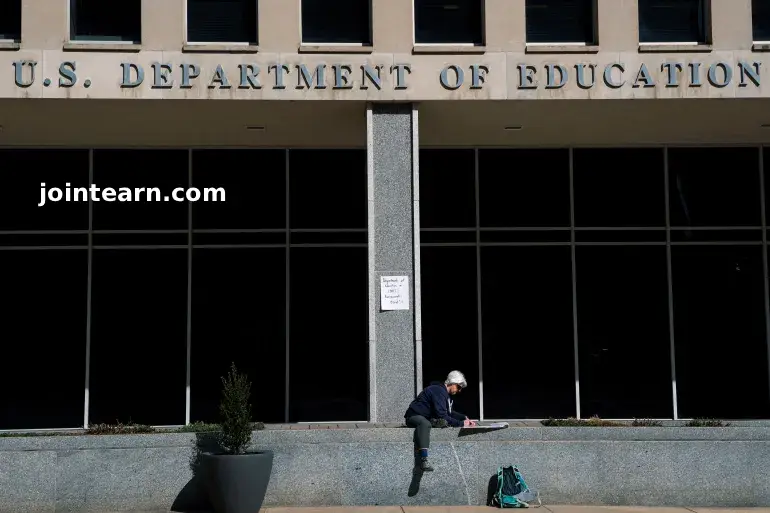
The Trump administration has finalized sweeping new regulations for the Public Service Loan Forgiveness (PSLF) program, drawing sharp criticism from advocates who say the move allows the US Department of Education to politically target nonprofits engaged in immigration advocacy and transgender rights work.
New Rules Grant Education Secretary Broad Discretion
The final rules, issued Thursday, grant the education secretary broad authority to exclude organizations from the PSLF program if they are deemed to have engaged in activities with a “substantial illegal purpose.” The regulations will take effect in July 2026.
Under the changes, groups accused of supporting undocumented immigrants or engaging in so-called “chemical castration of children” — a term used by Trump officials to describe gender-affirming healthcare such as puberty blockers — could lose access to the federal loan forgiveness program.
The administration insists that these decisions “will not be made based on the political views or policy preferences of the organization.” However, critics say the vague language opens the door for the government to punish liberal-leaning nonprofits and restrict civil liberties.
Public Service Loan Forgiveness Program: A Brief Overview
Created by Congress in 2007, the Public Service Loan Forgiveness (PSLF) program was designed to encourage graduates to pursue public service careers by offering to cancel federal student loans after 10 years of qualifying payments. Eligible participants include government employees, educators, medical workers, social service professionals, and nonprofit staff.
By redefining eligibility, the new Trump administration rules could significantly reduce the number of nonprofit workers eligible for forgiveness — including lawyers, social workers, and human rights advocates who rely on PSLF to offset low salaries in the public sector.
Advocates Condemn “Weaponization” of Loan Forgiveness
Michael Lukens, executive director of the Amica Center for Immigrant Rights, said the new rules effectively weaponize student loan forgiveness to penalize advocacy groups that clash with the administration’s policies.
“Many of our lawyers and social workers depend on PSLF to stay in this field,” Lukens told The Associated Press. “If this goes away, it will push a generation of young public service professionals out of immigration law and into for-profit work.”
The National Council of Nonprofits also criticized the rules, warning they could allow future administrations of any political party to reshape eligibility “based on ideology or political priorities” rather than objective criteria.
Trump Administration Defends the Policy
Administration officials defended the move as a necessary safeguard to protect taxpayer funds from misuse. Education Undersecretary Nicholas Kent said the policy aligns the program with its original intent.
“The Public Service Loan Forgiveness program was meant to support Americans who dedicate their careers to public service – not to subsidize organizations that violate the law, whether by harboring illegal immigrants or performing prohibited medical procedures on minors,” Kent said.
The administration has also accused some nonprofits of “supporting domestic terror networks,” although no specific evidence has been provided.
Broader Pattern of Targeting Liberal Institutions
The move comes amid broader efforts by the Trump administration to reshape federal funding priorities and impose new restrictions on universities, nonprofits, and international aid programs. Earlier this year, the Department of Education announced mass layoffs and new compliance rules for universities receiving federal research grants.
Critics see the PSLF rule changes as part of a broader attempt to undermine independent civil organizations, particularly those involved in immigration, reproductive rights, and gender equality advocacy.
Uncertain Future for Public Service Workers
For now, the changes will not take effect until mid-2026, leaving room for potential legal challenges or reversals by future administrations. However, nonprofit leaders warn that the uncertainty alone could deter young graduates from entering public service careers.
“The younger generation may wait this out, hoping for a change in leadership,” Lukens said. “But if this persists, we’ll lose a vital pipeline of professionals dedicated to social justice and community service.”
As the US government shutdown continues and funding battles intensify in Congress, the latest Education Department decision adds another layer of controversy to the administration’s handling of student debt, public service, and political neutrality in government programs.


Leave a Reply